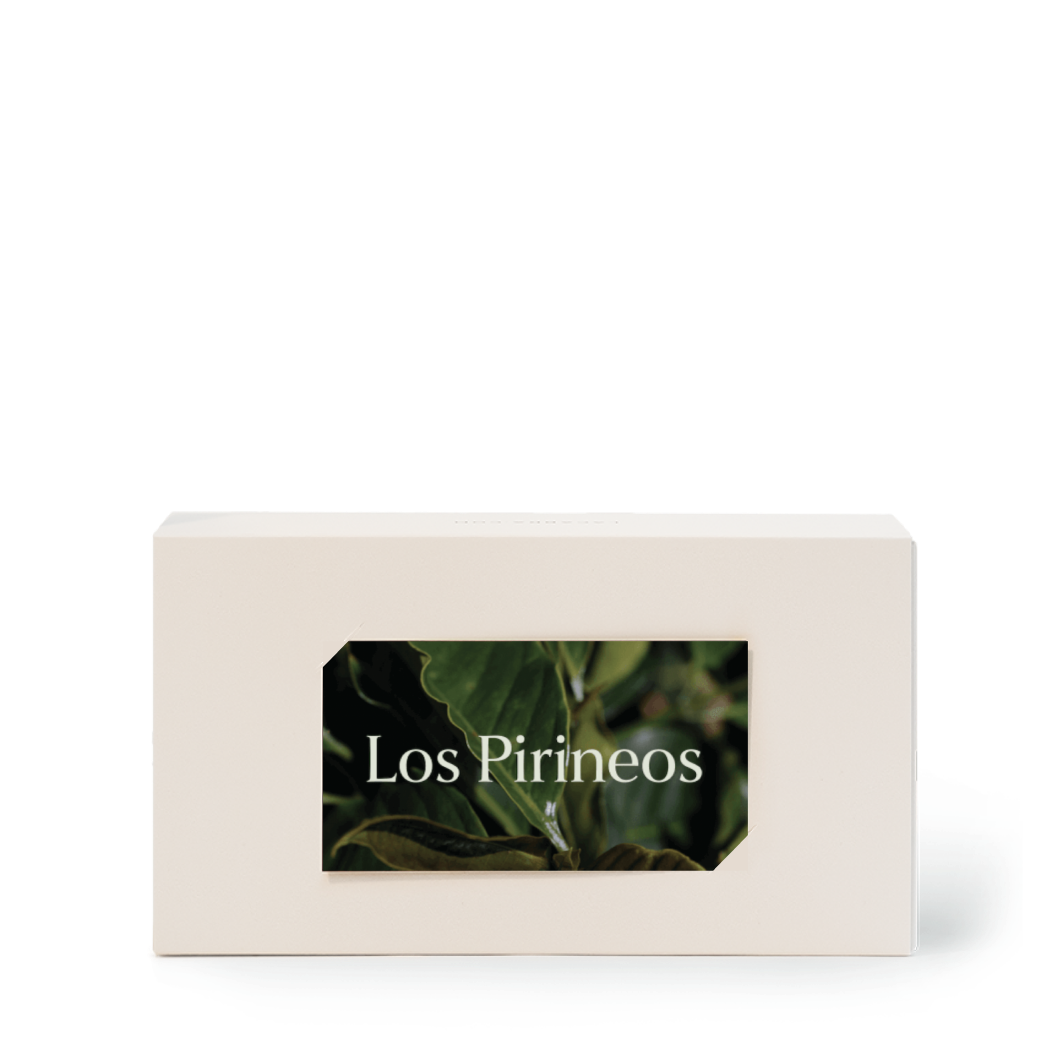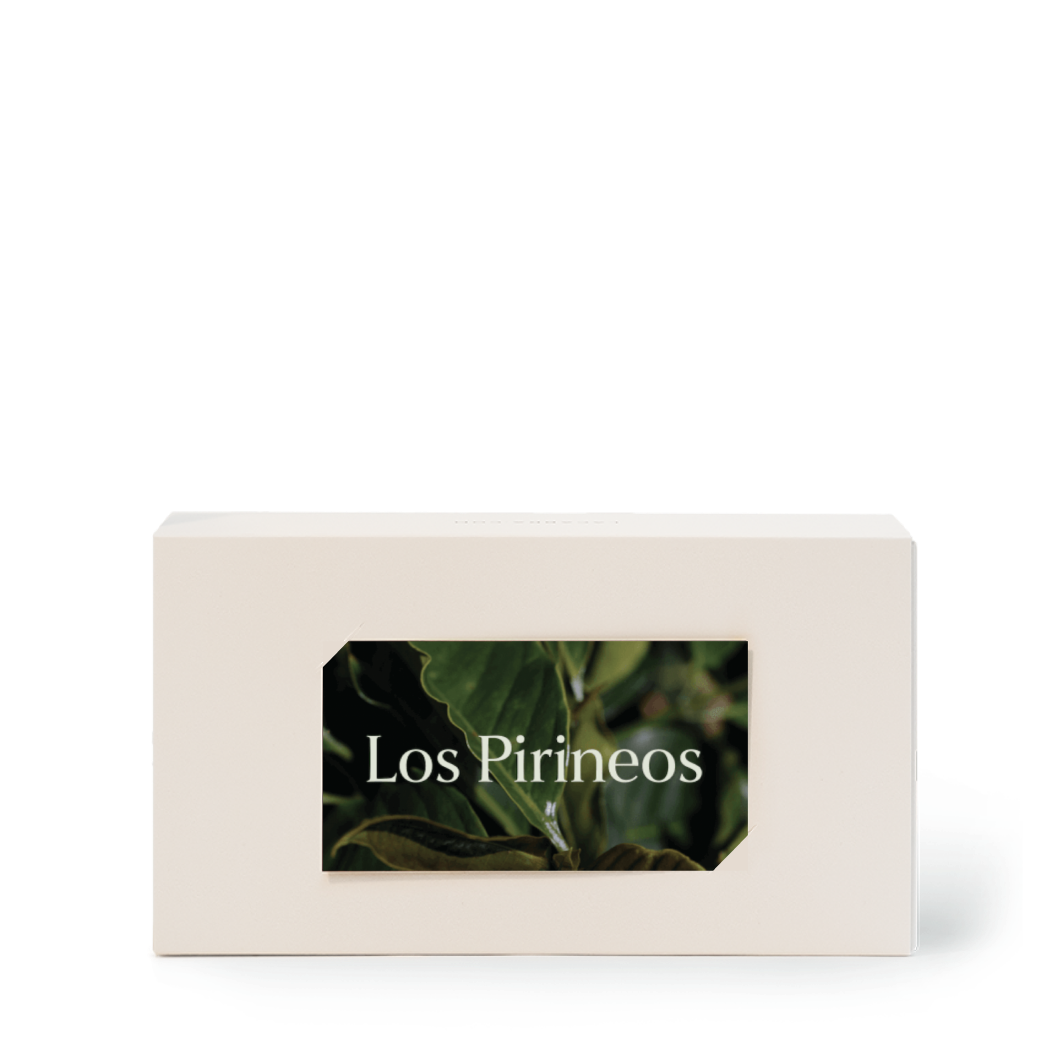

Over 20 varietals are in production at Los Pirineos, a number Diego has been increasing slowly, along with a greater emphasis on processing. The focus however remains on Pirineos’ incredible terroir, and signature coffees such as Pacamara and Bourbon. This year, we’re excited to share a wider look at Diego’s work than ever before, with new varietals and processes to our selection.
Producer: Diego Baraona
The Los Pirineos farm has been in the Baraona family for over 130 years. The farm is named for the Pyrenees mountain range that separates France and Spain; many are struck by the breathtaking landscape here in the far east of El Salvador, close to the border with Honduras. After generations of hard work, the family lost much of their land during the brutal Salvadoran Civil in the 1980’s. Gilberto Baraona returned to the family lands against the wishes of his grandparents, who wanted their descendants to avoid the hardship they had been through while producing coffee. Gilberto’s resolve was strong, and he rebuilt the farm, refocussing on producing high quality coffee until his tragic death in 2020. The farm was then taken over by his son Diego, the fifth generation of the Baraona family to work with coffee. Diego, at only 29, has taken on his father’s legacy with aplomb.
-v1710774729546.jpg?1460x1862)
The garden is home to 70 different varietals, many of which we’ve never seen before on our travels in coffee, or are familiar with from other parts of the coffee belt ...
We visited Los Pirineos in March 2023, our first trip since Diego took over. We were once again stunned by the steep volcanic slopes of the farm, perched on the Tecapa volcano. One of the highlights of a visit to Los Pirineos is always the varietal garden, curated by Diego’s father throughout his time in coffee. The garden is home to 70 different varietals, many of which we’ve never seen before on our travels in coffee, or are familiar with from other parts of the coffee belt. From this varietal garden, over 20 varietals are in production on the farm, a number Diego has been increasing slowly, along with a greater emphasis on processing, but still with a focus on Pirineos’ incredible terroir, and signature coffees such as Pacamara and Bourbon.
-2-v1709803122441.jpg?1200x960)

Pacamara
Pacamara’s success is closely linked to Los Pirineos’ work with the varietal. Gilberto Baraona was one of the main drivers in the early stages of the varietal’s uptake, and took it to several successes in the Cup of Excellence competition. The Pacamara varietal grown here is even recognised by World Coffee Research as one of the genetic blueprints for the varietal. This natural lot is part of Diego’s continuation of his father’s work. Pacamara cherries are dried slowly under shade, leading to a soft character in the cup, where the floral notes from the Pacamara shine through a base of berry yoghurt.

Heirloom
This lot is composed of an heirloom varietal grown at Los Pirineos, derived from seeds Gilberto collected on a trip to Harrar. The ripe cherries are fermented first for 72 hours in closed tanks before being de-pulped using water, therefore removing much of the sticky mucilage layer. Finally, the parchment coffee is dried under shade over 45 days. This results in a clean and complex cup, enhancing the floral notes in the heirloom varietal, and adding a sweet complexity in the cup. Here, this is reminiscent of jasmine, candied lemon, and butterscotch.

Pink Bourbon
This Pink Bourbon lot is processed using a method Diego dubs black honey. The parchment coffee is de-pulped without water, leaving much of the fruity mucilage on the seed. ‘Black honey’ lots are dried under shade, lengthening the drying phase and encouraging fermentation on the drying beds. This leads to the parchment coffee turning black during drying, giving the process it’s name and adding a soft process character in the cup. Here, this enhances the ripe tropical fruit character of the Pink Bourbon varietal, reminiscent of passionfruit and mango.



